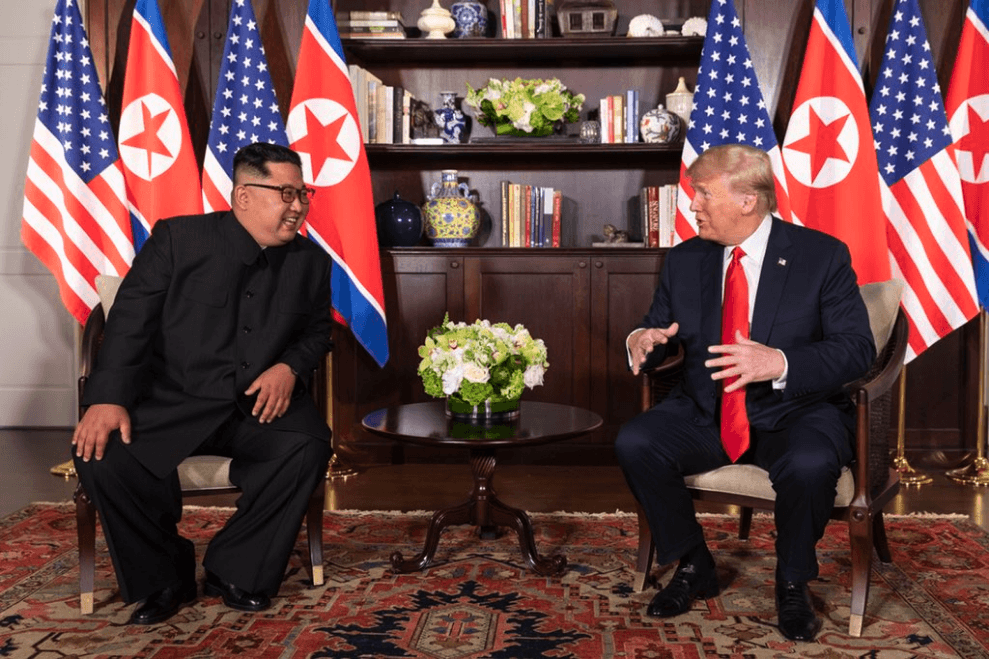North Korean concessions the United States might want
By David Kim | February 14, 2019
 North Korean leader Kim Jong-un and US President Donald Trump meet in Singapore in 2018. Credit: White House photo via Twitter.
North Korean leader Kim Jong-un and US President Donald Trump meet in Singapore in 2018. Credit: White House photo via Twitter.
In exchange for a peace declaration and even sanctions relief, the United States could ask North Korea for a number of concessions:
• An indefinite moratorium on all nuclear and missile tests, including those for short-range missiles.
• A verifiable freeze (cap) on weapons-grade fissile material, possibly through remote or online monitoring at enrichment facilities.
• A demonstrable reduction of nuclear-armed delivery systems (i.e., the Hwasong-12 or ICBMs) and nuclear-tipped missiles and launchers (Pukguksong). If ICBMs are not an option, the North could consider freezing production of ICBM transporter-erector launchers.
• Steps toward the verifiable dismantlement of Yongbyon nuclear facility.
• International verification of the disabling of the Punggye-ri nuclear test site and the missile engine launch site at Sohae (Tongchang-ri).
• The creation of a bilateral or trilateral (United States and South Korean) human rights working group, working in tandem with the Seoul-based United Nations human rights office.
A few longer-term US goals in North Korea may include:
• A broader declaration of North Korea’s nuclear weapons stockpile, delivery systems, and weapons-grade material.
• Confidence-building and conventional arms control measures similar to the Treaty on Conventional Armed Forces in Europe.
• The dismantlement and destruction of all of North Korea’s plutonium and uranium enrichment facilities.
• The re-entry of North Korea into the Nuclear Nonproliferation Treaty and full compliance with IAEA comprehensive safeguards.
• North Korea’s ratification of the Comprehensive Test Ban Treaty.
• Stronger enforcement of export controls (i.e., the North could join the Missile Technology Control Regime) and counter-proliferation measures to prevent third party transfers.
• Redirecting nuclear scientists and engineers towards civilian nuclear programs (i.e., the Nunn-Lugar Cooperative Threat Reduction Program).
• A declaration of chemical, radiological and biological weapons.
• Addressing North Korean cybersecurity, space and asymmetric capabilities.
•Comprehensive multi-tiered discussions on human rights violations.
Together, we make the world safer.
The Bulletin elevates expert voices above the noise. But as an independent nonprofit organization, our operations depend on the support of readers like you. Help us continue to deliver quality journalism that holds leaders accountable. Your support of our work at any level is important. In return, we promise our coverage will be understandable, influential, vigilant, solution-oriented, and fair-minded. Together we can make a difference.
Keywords: Donald Trump, Kim Jong-un, North Korea
Topics: Nuclear Risk, Nuclear Weapons














